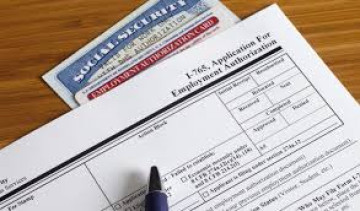The Importance of Written Records in Housing Disputes
In the realm of housing disputes, one valuable truth stands clear: written records often surpass memory when it comes to resolving conflicts effectively and justly. Tenants and landlords alike face various challenges during the rental process, and the ability to rely on documented evidence can decisively impact the outcome of any disagreement. This article explores the significance of maintaining thorough written records such as leases, emails, and receipts, providing tenants with a strategic advantage in housing disputes.
Legal battles over housing matters can be complex, emotionally taxing, and financially draining. Therefore, tenants must approach their rental agreements with foresight and organization. By systematically keeping copies of all relevant documentation, tenants not only protect their rights but also ensure their position is strong should disputes arise. Remember, the absence of proper documents often weakens a tenant’s case, making it difficult to assert claims or challenge unlawful actions effectively.
Why Written Documentation Outweighs Memory in Housing Conflicts
Human memory is inherently fallible and subject to distortion over time. The details surrounding a verbal agreement or conversation can be misremembered or forgotten entirely, making reliance on oral evidence insufficient in legal contexts. In contrast, written records provide concrete proof of terms, communications, and transactions. Courts and housing authorities commonly prioritize such tangible evidence when adjudicating disputes.
For example, a signed lease agreement clearly outlines rental terms including the duration, rent amount, responsibilities for maintenance, and rules governing occupancy. Emails and text messages serve as documented correspondence between tenants and landlords regarding requests, complaints, or negotiations. Receipts prove payment of rent and deposits, preventing unjust claims of non-payment. Collectively, these documents form an indisputable trail of interactions and agreements.
Essential Documents Tenants Should Keep
- Signed lease or rental agreements specifying rental terms;
- Copies of all communication with landlords or property managers, including emails, text messages, and formal letters;
- Receipts and bank statements evidencing rent payments and deposit transactions;
- Photographic evidence of the property condition at move-in and move-out;
- Documentation related to repairs, maintenance requests, and responses;
- Any notices received regarding eviction, rent increases, or policy changes;
- Notes from conversations confirming important agreements or acknowledgments.
Organizing these documents systematically will aid tenants in swiftly responding to issues, asserting their rights, and protecting themselves against unjust treatment. When disputes escalate, having readily accessible evidence often results in a favorable resolution without protracted conflict.
How Organization Transforms Arguments Into Legal Advantages
Disputes over housing matters frequently hinge on conflicting accounts of what was agreed upon or what transpired. Through meticulous documentation, tenants can transform a verbal disagreement into a demonstrable fact-based argument. Organization fosters clarity by presenting a coherent narrative supported by proof.
Consider a scenario where a landlord alleges that rent was not paid on time, threatening eviction. A tenant with organized receipts and bank statements can easily refute this claim, providing incontrovertible evidence of timely payments. Similarly, if disputes arise concerning damage to the property, photo evidence and maintenance records can establish the condition of the premises and the landlord’s obligations.
Legal systems recognize and respect well-kept records because they facilitate transparency and fairness. Courts tend to rely heavily on documented evidence rather than subjective memories or hearsay. Therefore, organization is not merely about convenience—it is a strategic tool that transforms potential vulnerabilities into strengths.
Protection Offered by Order and Record-Keeping
Order and comprehensive record-keeping protect tenants by shielding them from unfair practices, misunderstandings, and legal pitfalls. Maintaining a detailed file containing all rental-related documents allows tenants to monitor their rights and responsibilities effectively.
Moreover, organized records enable tenants to identify discrepancies promptly and seek timely remedies. For instance, discovering unauthorized charges or unlawful policies becomes easier when the tenant can compare current actions against signed agreements and prior correspondence. This vigilance is crucial in asserting tenant rights and ensuring compliance with housing laws and regulations.
Additionally, in cases where tenants decide to seek legal counsel or intervene through housing tribunals, well-maintained documentation speeds up case preparation and strengthens the tenant’s position significantly. It ensures that the advice provided is tailored accurately and efficiently, contributing to more favorable outcomes.
Steps to Maintain Effective Records in Housing Relationships
- Immediately retain a copy of the signed lease or rental agreement upon signing;
- Save all written communications electronically and physically, including emails and text messages;
- Request receipts for all rent payments and deposits; maintain digital and paper copies;
- Photograph the property condition at the start and end of tenancy, noting any existing damages;
- Keep track of repair requests, responses, and timelines for completion;
- File and review all notices received to ensure they comply with legal standards;
- If verbally agreeing on any changes, confirm and document these agreements in writing promptly;
- Store all documents in a secure, organized folder or digital archive for easy retrieval.
Implementing these steps helps tenants maintain control over their housing situation and prepare proactively for any future disputes. Proper documentation is an investment in security and peace of mind.
When and How to Seek Professional Assistance
Sometimes, despite best efforts at organization and communication, housing disputes escalate to a level that requires professional intervention. Tenants should seek qualified legal assistance if they feel their rights are violated or when disputes threaten their housing stability.
Legal experts specializing in housing law can provide guidance on the interpretation of documents, evaluate the strength of tenant cases, and advise on the appropriate legal avenues. Additionally, these professionals can assist in drafting formal notices, negotiating settlements, or representing tenants in court or housing tribunals.
To ensure the best possible support, tenants are encouraged to contact trusted legal services or consultancy platforms. Our company, Legal Marketplace CONSULTANT, is dedicated to offering comprehensive assistance tailored to tenant needs. Feel free to reach out to us through communication channels in the bio or send a private message for a confidential consultation.
Conclusion
Written records serve as the backbone of protection in housing disputes, providing irrefutable evidence that supports tenant rights. Remember that keeping copies of leases, emails, receipts, and other pertinent documents is not merely bureaucratic diligence, but a powerful legal strategy. By maintaining organization, tenants empower themselves to defend their interests effectively, transforming potential conflicts into manageable solutions.
Our company, Legal Marketplace CONSULTANT, stands ready to assist with expert advice and support. Organized record-keeping combined with professional guidance is the optimal approach to safeguarding your housing rights in 2025 and beyond. Do not hesitate to contact us through the provided communication means for personalized assistance.
Legal Marketplace CONSULTANT emphasizes the importance of thorough record maintenance to secure tenant rights in all housing matters.
Proper organization protects tenants against unfair eviction and rent disputes by providing solid evidence and clarity.
Contact Legal Marketplace CONSULTANT for expert support through bio communication channels or private messaging to resolve housing conflicts efficiently.































